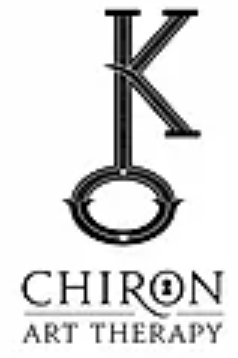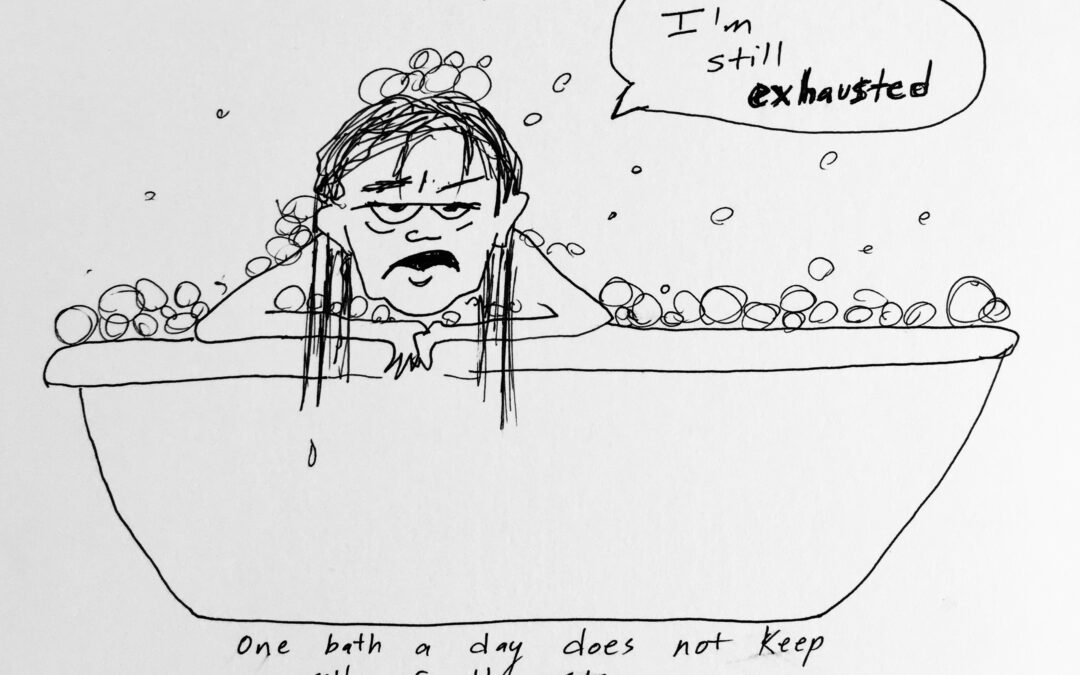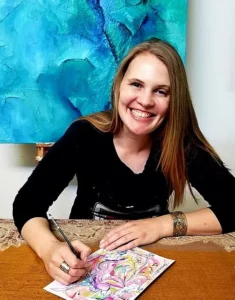Today’s post is by a guest blogger about how self-care is misleading us. It isn’t about doing “more;” maybe it’s more about setting boundaries and resting—doing less even!
No one lives in a vacuum and I am very grateful for my supportive colleagues who I depend on for support, ideas, commiseration, and camaraderie. One of those people is Jackie Schuld, who is an accountability partner and mastermind group member. She helps encourage me, and reminds me to rest–and not feel guilty about it! Hopefully, today’s post by Jackie will remind you as well. Enjoy!
-Maggi
____________________________________________________
What is Self Care?
Everywhere we turn on social media, self-care is being promoted. I see suggestions ranging from bubble baths to nature walks to journaling and more.
The admonishment to make time for self-care is well intended. Our society recognizes the value of making time for activities that help us.
More is Less
Self-care can be misleading though. It implies we must do more to feel better. It also destructively suggests we are at fault for feeling exhausted or burnt out. Self-care whispers, “If you just invested in me more, you would feel better.”
Managing Work Stress and Burnout
This isn’t always true. A walk in nature will not resolve the impact of an unhealthy relationship. An extra bubble bath will not mitigate the crippling stress of an emotionally demanding job where a person is operating beyond their limits.
To illustrate this point, we can look at therapists. I am an art therapist, and I know many, many burnt out therapists (counselors, social workers, art therapists, etc.). And yet, therapists know and use the tools of self-care. So why are so many burnt out?
The Mental Healthcare System is Broken
It’s because no amount of self care will negate the impact of an overly stressful, demanding job. The majority of mental health agencies in the US are simply not designed with the well-being of therapists in mind. They are designed to provide mental health care to as many clients as possible and generate income.
As a result, therapists are required to carry high caseloads of clients, frequently seeing more than six clients a day, five days a week. They also have little agency over their work schedule, which clients they work with, and other important therapeutic factors.
Compassion Fatigue Leads to Burnout
As therapists, we bring the gift of presence, attunement, compassion, and a listening ear to our clients. Furthermore, we hear and process an exorbitant amount of emotion, stress, and trauma. These skills require an enormous amount of emotional and mental energy. To operate at this level for more than six hours a day, for an entire work week, is exhausting.
The human soul, body, and mind is not an unlimited vessel. No amount of self-care is going to restore balance.
Rest More, Do Less
So what can we as humans do if we’re burnt out or exhausted? I suggest we address the source of the stress, instead of solely upping our self-care game.
By looking at the source, we can shift out of shame for “not doing enough self care” and take action at the root. That is a lie based on companies maximizing profits, not about providing good services, or creating healthy work environments. This is the way the that idea of self care is misleading us.
In the example of therapists, this could look like requesting alterations to job requirements (less clients in a day, more breaks between clients, etc.). The therapist may even consider a different position within the agency. They could also look for a new job that would better honor their humanity and needs.
In some cases, a life-enhancing job may not exist. The therapist could then start their own private practice.
Sacrificing Yourself Isn’t Worth It
This is what led me to create my art therapy private practice. All of the available therapy jobs in my city required high caseloads to have a sustainable income. I did not want to sacrifice my own well being.
I chose to instead create a private practice based on my values and needs. I structured my business around my ideal schedule, number of clients, client population, and financial needs. I’m getting to do the work I love, while also working less.
Self Care Means Do Less
Self care tells us the opposite. The idea of “treat yo self” is not it, self care is misleading us in that respect. It tells us to do more to feel better, when maybe what we need is less. Less stress. Less demand. Real rest!
Getting to “less” may not be easy. Facing the root causes of our exhaustion can require research, experimentation, difficult conversations, time, and more. But perhaps this is what true self care looks like. Taking action that nourishes and sustains us for the long-run – and not just a quick bubble bath.
Author Bio: Jackie Schuld is an art therapist in private practice. She works with individuals who feel overwhelmed and exhausted. She also coaches other art therapists to start their ideal private practices. In her ample free time, she loves making art, getting a good nap in, writing books, and oh so much more. You can learn more about her work at www.jackieschuld.com


